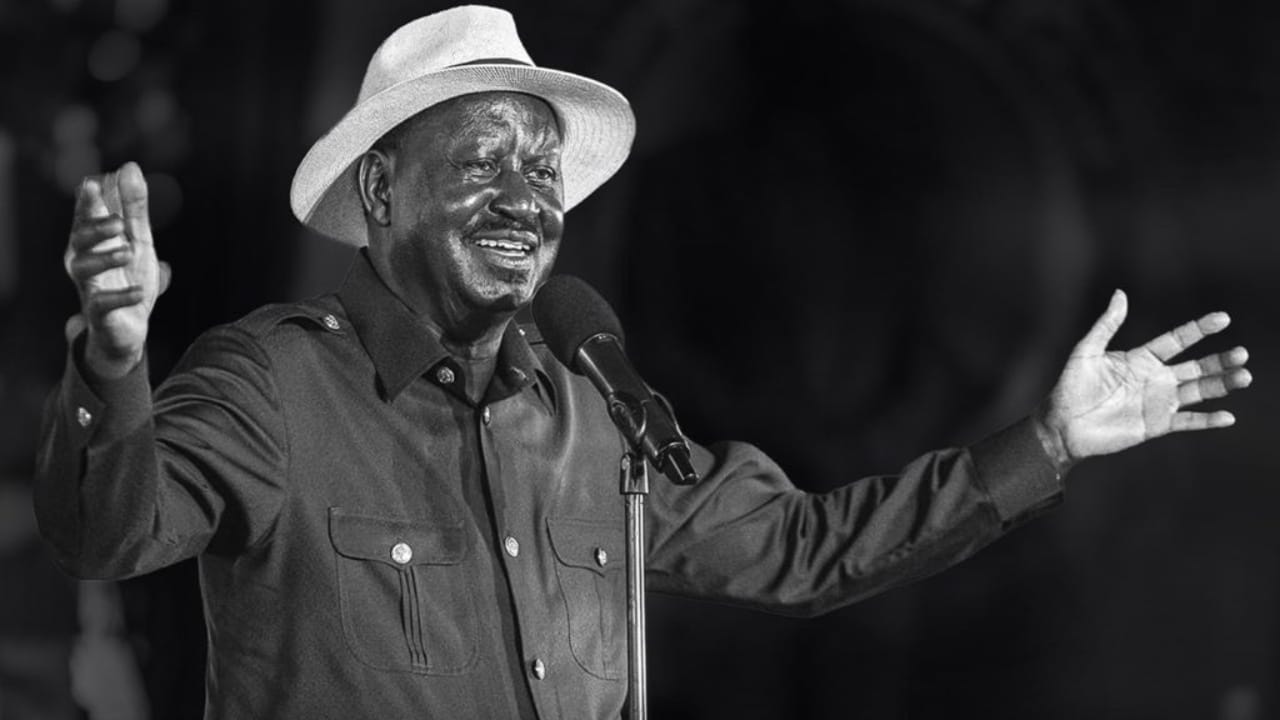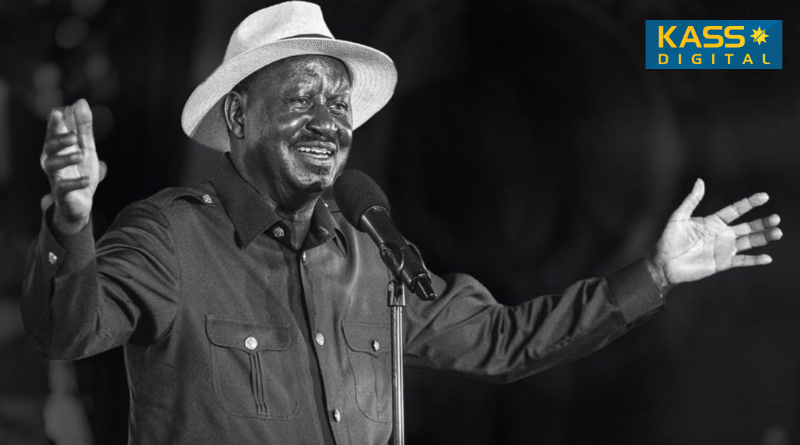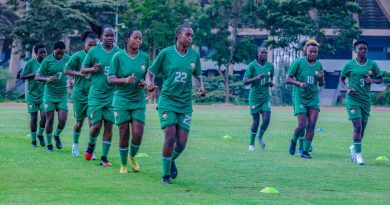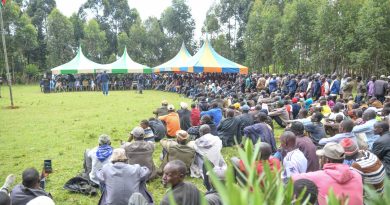Raila Amolo Odinga Dies at 80; President Ruto Declares Seven Days of National Mourning
By Chemtai Kirui, NAIROBI, Kenya,
President William Ruto has announced the death of former Prime Minister Raila Amolo Odinga, describing him as “a giant of democracy, a fearless freedom fighter, and a tireless warrior of good governance.”
In a televised address to the nation on Wednesday afternoon, President Ruto said Odinga, 80, died while undergoing treatment in Kochi, India. He declared a seven-day period of national mourning, with the Kenyan flag to fly at half-mast across the country and in all embassies and missions abroad.

“Kenya, Africa, and the world mourn the passing of a giant of democracy,” President Ruto said. “Raila Amolo Odinga’s name will forever be etched in the story of our republic — a story of struggle, sacrifice, courage, and hope.”
The President said Odinga would be accorded a state funeral and announced the formation of a joint committee, co-chaired by Deputy President Prof. Kithure Kindiki and Senator Oburu Odinga, to coordinate funeral arrangements.
He added that the Government of India, in collaboration with the Government of Kenya, would facilitate the repatriation of Odinga’s remains. A delegation led by Prime Cabinet Secretary Musalia Mudavadi — including Cabinet Secretaries Kipchumba Murkomen, Hassan Joho, and parliamentary leaders Kimani Ichung’wah and Junet Mohamed — departed immediately for India to oversee the process.
Mama Ida Odinga and family members are expected to accompany the delegation, according to the President’s statement.
A Life of Resistance and Reform
Born on January 7, 1945, in Maseno, Kisumu County, Raila Odinga was the son of Kenya’s first Vice President, Jaramogi Oginga Odinga, and Mary Juma Odinga. Educated in East Germany, he earned a master’s degree in mechanical engineering before returning home to lecture at the University of Nairobi.
Odinga’s political journey was defined by resistance to authoritarian rule and a lifelong campaign for multi-party democracy. Detained multiple times under President Daniel arap Moi’s regime — including after the failed 1982 coup — he became a central figure in the movement that ended Kenya’s single-party era in 1991.
He later held several senior government positions and served as Kenya’s second Prime Minister from 2008 to 2013 in a coalition government with President Mwai Kibaki, following the disputed 2007 election.
During that tenure, Odinga oversaw major constitutional reforms, including the promulgation of the 2010 Constitution, which introduced devolution, expanded civil rights, and restructured governance.
Odinga vied for the presidency five times — in 1997, 2007, 2013, 2017, and 2022 — emerging as the face of opposition politics for more than two decades.
His challenge of the 2017 election results led to the historic annulment of the presidential vote by Kenya’s Supreme Court — the first such ruling in Africa. In 2018, his surprise “handshake” with then-President Uhuru Kenyatta was hailed as a moment of national reconciliation, easing years of political tension.
Odinga was married to Ida Betty Odinga (née Oyoo), a respected educator and advocate for women’s empowerment. Together they had four children: Fidel (deceased in 2015), Rosemary, Raila Jr., and Winnie.
His family has long been intertwined with Kenyan public life, with Rosemary known for her work in agribusiness, Winnie for her active role in politics, and Raila Jr. for his ventures in business and media.
Condolences have begun pouring in from across Africa and beyond. Former Nigerian President Olusegun Obasanjo described Odinga as “a statesman who fought for freedom not only in Kenya but for all of Africa.”
South African President Cyril Ramaphosa said, “Raila Odinga embodied the spirit of African resilience and democracy. His voice carried the aspirations of millions across the continent.”
Ethiopian Prime Minister Abiy Ahmed also sent his condolences, saying, “On behalf of the Government of Ethiopia, I extend my sincere condolences on the passing of former Kenyan Prime Minister Raila Odinga. May he rest in peace.”
Locally, Kenyans from across the political divide have united in mourning. ODM officials, governors, and civil society leaders hailed Odinga as “the father of modern Kenyan democracy.”
In Nairobi and Kisumu, supporters gathered outside ODM offices, waving orange flags and singing liberation songs in his honor.
Raila Odinga’s name will forever be synonymous with Kenya’s long struggle for democracy and social justice. From the days of detentions and political bans to the triumph of constitutional reform, he remained a steadfast advocate for inclusion, equity, and freedom.
As President Ruto said in his closing remarks,
“We have lost a beacon of courage, a tower of principle, and a father of our democracy. May his soul rest in eternal peace, and may God comfort his family and bless Kenya.”
What Comes Next
As Kenya enters a week of mourning, leaders across the political spectrum are expected to pay tribute. The funeral planning committee will coordinate state and family protocols, with repatriation and burial details to be announced.
Analysts say his death is likely to spark reflection on the future of opposition politics and Kenya’s ongoing democratic transition — but also to unify a nation around the legacy of one of its most consequential leaders.




